PROGRAM
NEW download the detailed program of Ethical Leadership: A New Frontier for Design in PDF format
Day 01
Tuesday
June 3th
09:00 am – 4:30 pm
New territories for design research
Symposium chaired by Sciences du Design
in French only
7:00 pm – 00:00
Welcome party & art exhibition – Magmaa
Day 02
Wednesday
June 4th
09:00 – 12:30 am
Opening Ceremony Keynotes – La Cité
2:00 – 5:30 pm
Paper Sessions / Working groups
6:00 pm
Welcome reception
9:00 pm – 01:00 am
After party – Trempo
Day 03
Thursday
June 5th
9:00 – 10:30 am
Keynotes
11:00 – 12:30 am
Paper Sessions / Working groups
2:00 – 5:30 pm
Paper Sessions / Working groups
Cumulus Design Conversations
6:00 – 8:30 pm
France Design Impact Awards Exhibition – Halles 1&2
7:00 – 10:00 pm
Community dinner – Downtown
Day 04
Friday
June 6th
09:00 – 10:30 am
Keynotes
11:00 – 12:30 am
Paper Sessions / Working groups
2:00 – 5:30 pm
Paper Sessions / Working groups
General Assembly – Halles 1&2
6:00 – 7:30 pm
Election Results Announcement Closing & Cumulus 35th anniversary celebration
7:30 pm – 1:00 am
Ceremony Gala Dinner – LAB
Day 05
Saturday
June 7th
A selection of cultural visits to be confirmed
See all addresses
The conference will mostly take place at L’école de design Nantes Atlantique: 61 Bd de la Prairie au Duc, 44200 Nantes
Magmaa: 15 Rue La Noue Bras de Fer, 44200 Nantes
La Cité des Congrès de Nantes: 5 Rue de Valmy, 44000 Nantes
Trempo: 6 Bd Léon Bureau, 44200 Nantes
Stéréolux: 4 Bd Léon Bureau, 44200 Nantes
Halles 1&2: 5 All. Frida Kahlo, 44200 Nantes
LAB, Little Atlantic Brewery: 23 Bd de Chantenay, 44100 Nantes
Keynotes
Wednesday, June 4th

Cynthia Fleury
Cynthia Fleury, Professor of the « Humanities and Health » Chair at the Conservatoire National des Arts et Métiers, is also an associate professor at the École des Mines (PSL/Mines-Paristech). Her research focuses on the tools of democratic regulation.
She is the author of several works, including Dialoguing with the East (PUF, 2003), The Pathologies of Democracy(Fayard, 2005; Paperback 2009), The End of Courage (Fayard, 2010; Paperback, 2011), The Irreplaceables (Gallimard, 2015), and Here Lies Bitterness (2020).
She has taught for a long time at the École Polytechnique and Sciences Po (Paris). She was the president of the NGO Europanova, which organized the Citizens’ Convention for Europe (the largest gathering of European civil society). She currently serves as its vice-president. Upon joining the CCNE (National Consultative Ethics Committee) in 2013, she became its youngest member. She is also a founding member of the European Network of Women Philosophers of UNESCO. As a psychoanalyst, she is the patron of ICCARRE (the intermittent treatment protocol for HIV) and a member of the emergency medical-psychological unit of SAMU (CUMP-Necker).
After founding the Chair of Philosophy at the Hospital (Hôtel-Dieu Paris), she is now the holder of the Chair of Philosophy at the GHU Paris Psychiatry and Neurosciences. Cynthia Fleury was chosen to be the associated personality of Les Champs Libres in Rennes from 2018 to 2021.
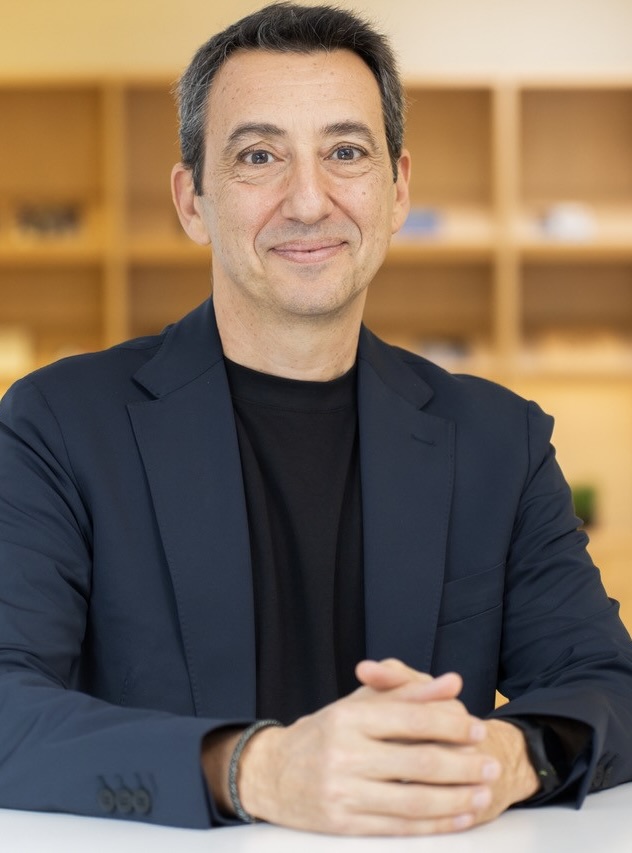
Federico Casalegno
Federico is Executive Vice President of Design at Samsung Electronics. He heads the Samsung Design Innovation Center (SDIC) in San Francisco, CA, Next-Generation Experience Planning Teams in Seoul across business units and head of Design and AI.
Federico leads global multidisciplinary teams in the USA, Asia, and Europe to design new generations of experiences and envision future products. As a designer, innovator, and social scientist, he focuses on the impact of networked digital technologies on human behavior and society, and designs products, services, and meaningful experiences to improve people’s lives.
Before joining Samsung, Federico was an Associate Professor of Practice at the Massachusetts Institute of Technology, teaching at MIT and MIT Media Lab. He also founded and directed the MIT Design Lab and the MIT Mobile Experience Lab. He previously worked at Motorola, Inc. and Philips Design, envisioning and creating innovative product experiences. He has been awarded honorary professorships at the Glasgow School of Art, University of Glasgow, and the Jiangnan University School of Design in Wuxi, China. He has published several scientific papers in peer-reviewed journals, along with books and articles, and he has won several awards for his design and innovation work.
Federico earned his PhD in Sociology of Culture and Communication from the Sorbonne University in Paris, France, with a focus on mediated communication and social interaction in networked communities and smart cities.
Thursday, June 5th
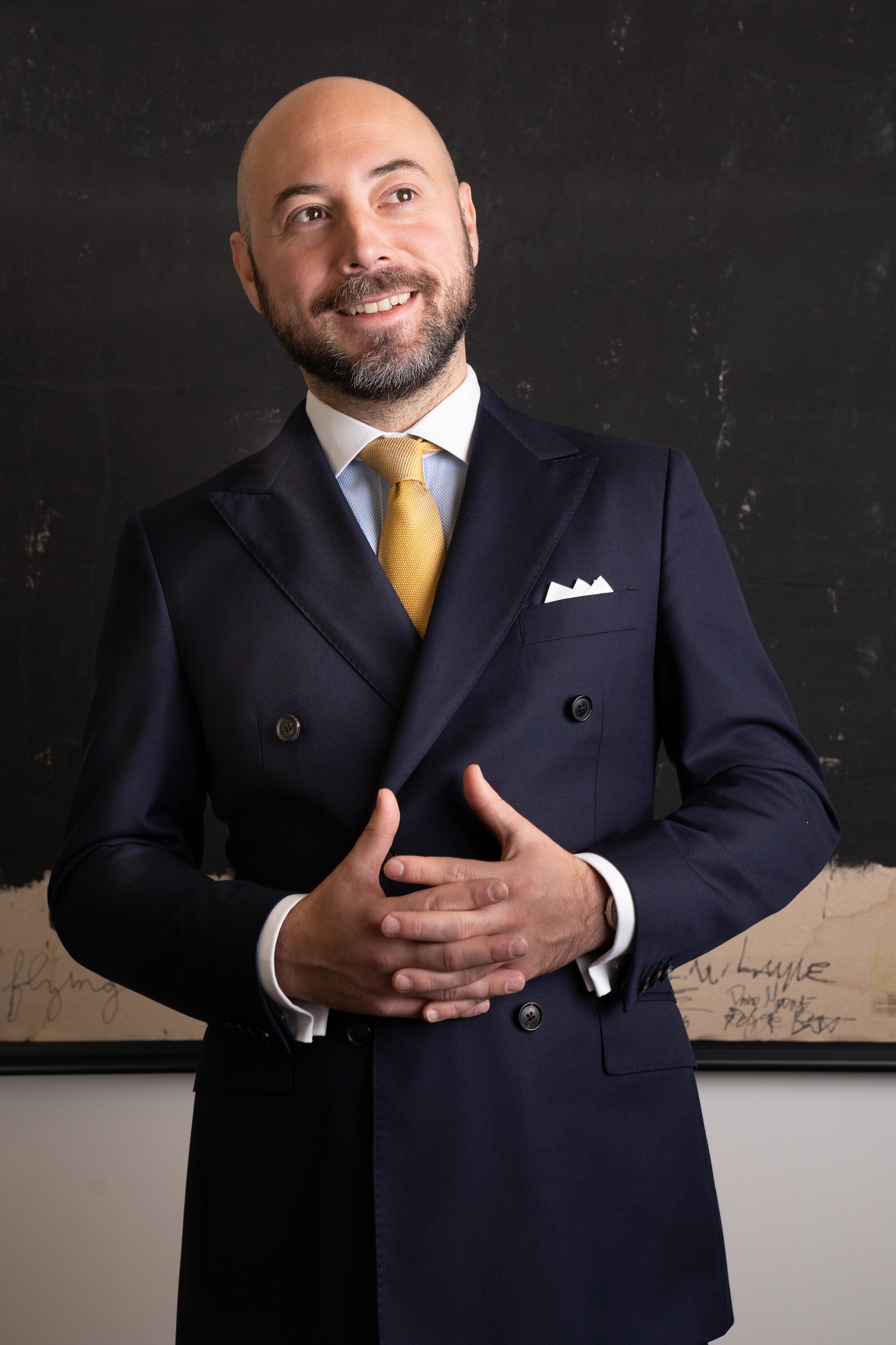
Gjoko Muratovski
Gjoko Muratovski is an award-winning designer, researcher and innovation consultant working with a wide range of universities, Fortune 500 companies, and various governments from around the world. By combining design-led innovation, social sciences, and strategic foresight with agile and lean management principles and evidence-based research, he helps organizations become human-centric, socially responsible, and future-proofed. Throughout his career he has held numerous leadership and high-profile appointments at various institutions. He was invited to join various thought-leading organizations such as the Forbes Councils, Stanford Institute for Innovation in Developing Economies, Oxford University Society, Oxford Digital Leaders Network, Yale Higher Education Leadership Summit, and the White House Presidential Innovation Fellows Program. Muratovski was elected as a Fellow of the Design Research Society (FDRS) for his contributions to the field of design research.
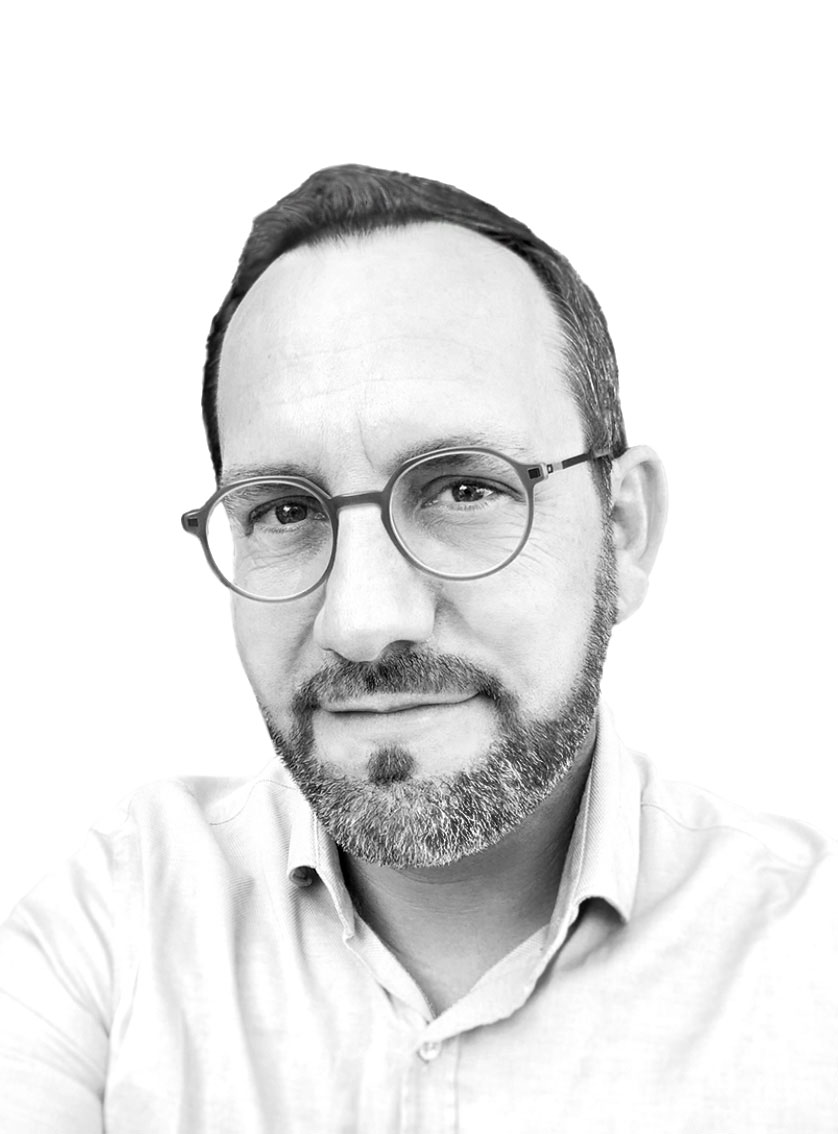
Fabien Grégoire
Born in Nantes in 1976, Fabien Grégoire is a French designer who has spent a significant part of his career in Japan. A graduate of l’École de Design Nantes Atlantique in 2001, he worked as a freelancer for companies such as Staub and Visteon before joining KENWOOD in 2002. During his time in Japan, Fabien distinguished himself in advanced design, pushing the boundaries of both hardware and software design in collaboration with various Japanese and international companies across high-tech, automotive, entertainment, professional solutions, and healthcare industries. He had an impressive career at JVCKENWOOD, rising from design director to a top executive role. After a brief stint in consulting, Fabien joined Saint-Gobain in 2024 as Head of Experience Design for HPS (High Performance Solutions) to shape new digital business opportunities.
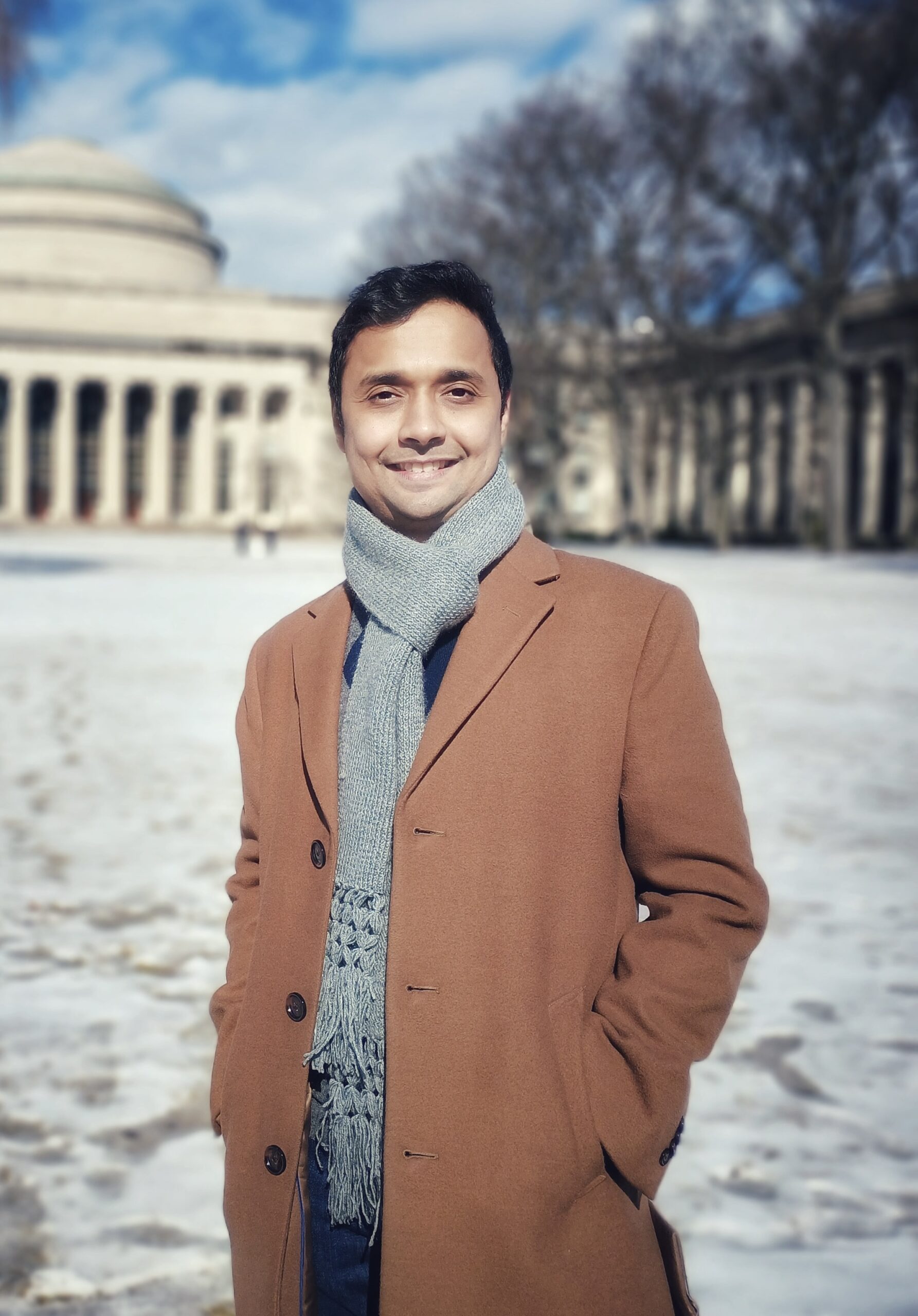
Rohit Priyadarshi Sanatani
Friday, June 6th
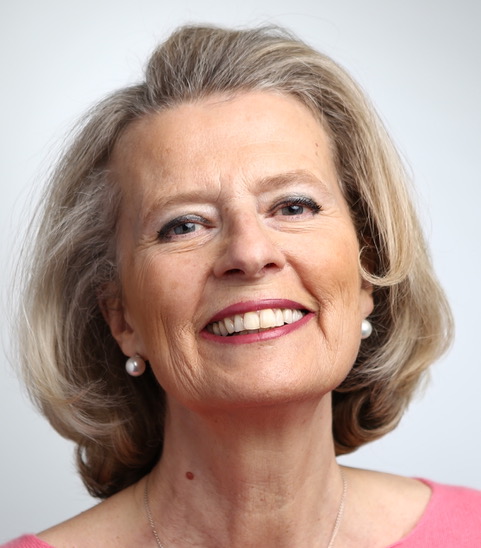
Antoinette Lemens
Born in the Netherlands with an English father and a Norwegian mother, Antoinette Lemens pursued her studies in Belgium, Spain, and England. She began her career at a creative agency in London before joining Concept Group, a design agency in Paris. For four years, she worked for Kenzo, handling the brand’s visual identity and communication on an international level. She became the General Director of the international group Novamark before founding her own company, Jobs in Creation, which specialized in recruiting creative talent. In 2004, she joined Aquent and became responsible for key accounts internationally. She left this firm in 2009 and founded her new company: Lemens & Partners, specializing in the recruitment of top creatives internationally in the fields of luxury, fashion, and design.
A keen observer of personalities and behaviors, she is also highly attuned to trends and locations. She organizes and leads Retail Tours for many brands. From Paris to Berlin, New York to London, she and her team discover the most original boutiques and concepts, unique décor, and exceptional experiences.
Antoinette Lemens is also deeply involved in the design industry and has held the position of General Delegate of the “Association Design Conseil” for over 25 years. This association aims to promote design and its various disciplines to public authorities, professional associations, and advertisers. She is very involved in international juries for design competitions in fashion, luxury and in the industrial sector. She is also very invested in promoting young talent and works closely with design schools.
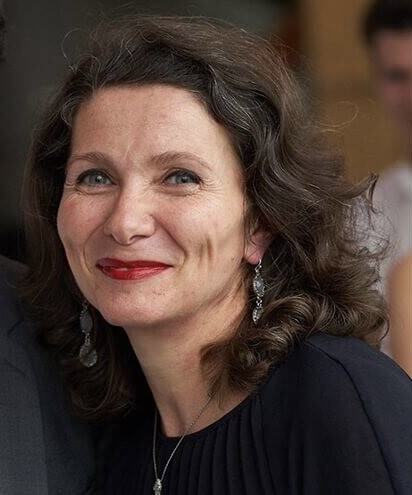
Sihem Jouini
Sihem BenMahmoud-Jouini, associate professor at HEC Paris and researcher at GREGHEC, specializes in the management of innovation, disruptive innovation and design in the transformation of organizations. She teaches project management, innovation and creativity, and directs several academic programs, including the MS X-HEC Entrepreneurs and Executive MBA majors. Her research focuses on the organization of exploration and new product development processes. She has published numerous articles and books on these subjects and is a regular speaker at international conferences. She works with companies and institutions such as Thales, Valeo, Air Liquide and Danone.
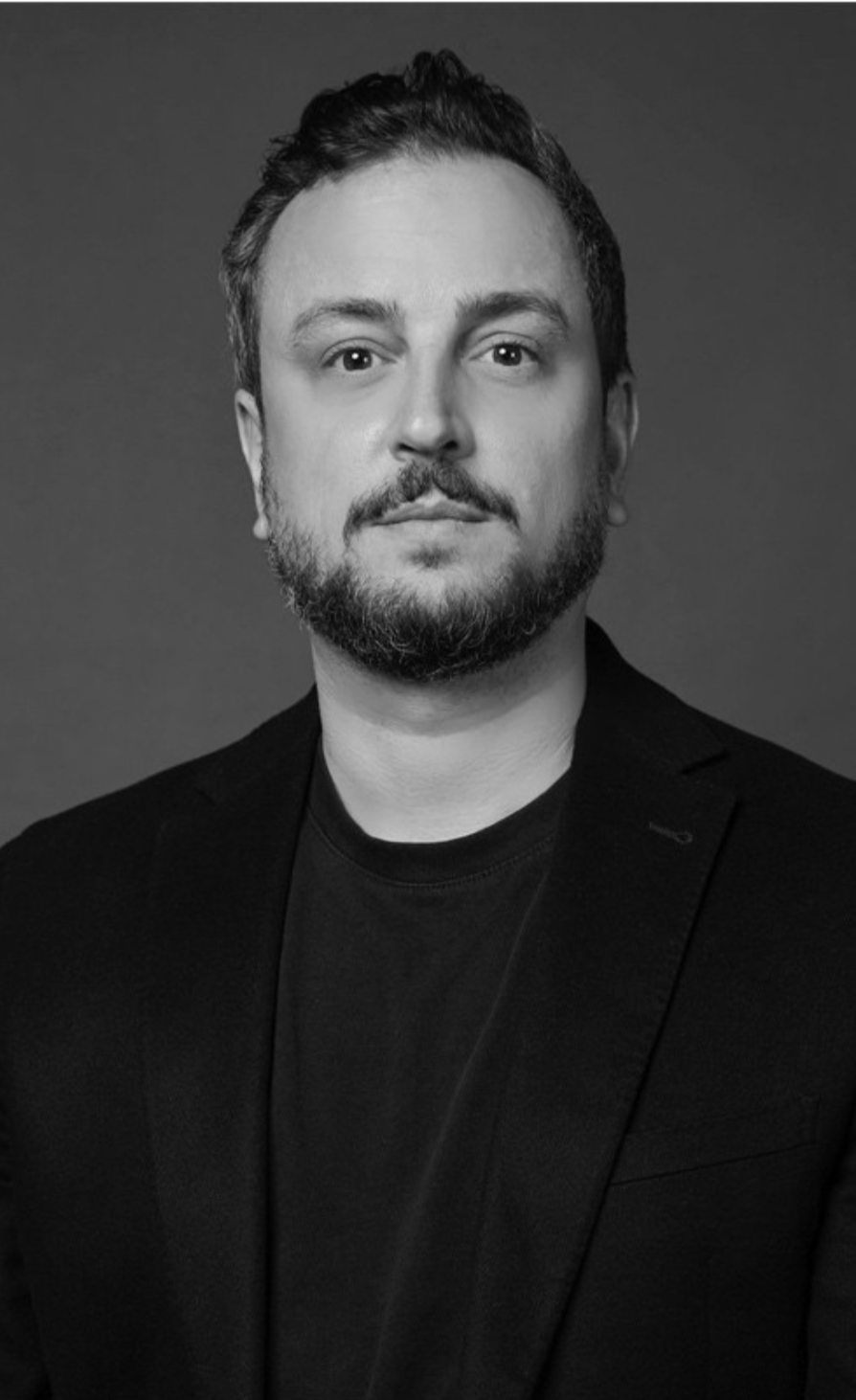
Matthieu Aquino
Matthieu Aquino is a co-founder of two global design organizations at Fortune 100 companies—3M and PepsiCo. Over the years, he has built performance-driven design functions that have significantly enhanced both organizations’ innovation and growth. With expertise across all design disciplines – branding, packaging, product and interior design, digital experiences, and brand activations – Matthieu has led transformative initiatives in a variety of industries, including consumer electronics, hospitality, retail, architecture, art, fashion, and both professional and consumer goods. Currently, Matthieu serves as Vice President of Global Foods Design, Brand & Customer Experience at PepsiCo, where he oversees a $55 billion portfolio of brands. In this capacity, he covers three distinct roles:
1) shaping design strategies, systems, and consumer experiences across PepsiCo Foods’ global portfolio, as well as leading new growth initiatives.
2) driving consumer-facing activations across PepsiCo’s Foods and Beverages portfolio, by building the most relevant brand experiences across global touchpoints, developing and executing high-impact programs in collaboration with prominent sports, music, and entertainment brands such as NFL, FIFA, UEFA, NBA, Grammy Awards, and Coachella.
3) leading the Customer Experience Design arm, where he applies design thinking to enhance the Foodservice channels, focusing on QSR (Quick Service Restaurants) and HORECA (Hotels, Restaurants, and Caterers). His work focuses on customer acquisition and retention through innovative strategies, co-branded campaigns, and channel activations
Originally from a small town near Versailles in France and deeply connected to his Italian heritage, Matthieu is a true global citizen. He has lived and worked in key markets across three continents and has established Design Centers in more than ten cities worldwide, enriching his leadership experience in building corporate capabilities. Matthieu has also served on multiple design award panels, was elected to the Advisory Board of the international design school IED and earned over 450 design awards with his teams at PepsiCo.
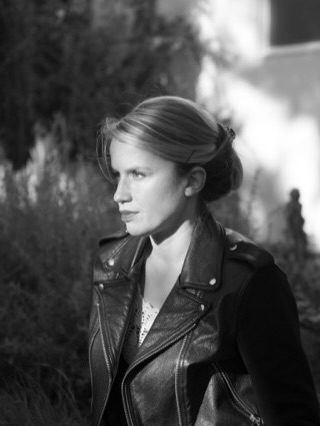
Stéphanie Roland
Stéphanie Roland is a Brussels-based visual artist and filmmaker. Hovering between documentary and imaginary, her films and installations explore the invisible structures of the Western world, the large scales of time, and hyperobjects. She draws her inspiration from a wide range of subjects, from environmentalism and politics to geology and the cosmos.
Having graduated from Brussels’ La Cambre and studied with Hito Steyerl at the UDK Berlin, she completed a course in France at Le Fresnoy – Studio national des arts contemporains. Her projects regularly feature in exhibitions at internationally renowned institutions: Venice Biennale, Centre Pompidou, Louvre Museum, Benaki Museum, Haus der Kulturen der Welt, Botanique, Kampala International Art Biennale, Wiels, and ISELP. Breda Photo, Belfast Photo Festival,Encontros da Imagem, BIP Liège and MOPLA Los Angeles are some of the photography festivals in which she has participated.
Her films have been shown at international festivals such as Visions du Réel, FID Marseille, Festival dei Popoli, ZINEBI Bilbao, FEST New Directors / New Films, Rencontres Internationales Paris / Berlin, Curtas Cinema and PÖFF Shorts Tallin black nights, to name but a few. Her first film,Podesta Island, won the Alice Guy prize at the FID Marseille while her second, Le cercle vide, won the TËNK prize at the Visions du Réel festival in Nyon.
Wednesday, June 4th
Cumulus Design Declaration 2025
The Cumulus Design Declaration has as its precedent the Kyoto Design Declaration of 2008, which was proposed to express the responsibility of design in an era marked by the challenges of sustainability and globalization. The Cumulus Association has been the platform for this, and over the years the values of the Declaration have been adopted by its members and partner institutions, such as international companies, governments and sister organizations. Given the pace of change and the contemporary challenges we face as a society, the association set out to revisit the Kyoto Design Declaration and reaffirm design’s commitment to society and the planet. This has been done in an open and collaborative way by means of a two-year process involving surveys, workshops and discussion forums for the participation of associates representing 400 educational institutions and more than 40 institutional partners worldwide, all accompanied by semantic and data analysis to co-create an evolved version of the original Design Declaration.
The Cumulus Declaration will be signed and endorsed during the opening of the Ethical Leadership: A New Frontier for Design conference in Nantes, June 4
Thursday, June 5th
Design Cultures for Peace
« Design Cultures for Peace » is a roundtable at the Cumulus Conference in Nantes Atlantiques examining the important role of international design organizations in times of conflict. This session brings together design leaders to discuss how our global networks can respond ethically and effectively when faced with geopolitical tensions and humanitarian crises.
The discussion will explore how design organizations can maintain open dialogue across divides, support affected communities, and advocate for peaceful solutions while respecting cultural sensitivities. Participants will share perspectives on balancing institutional neutrality with moral responsibility, and developing collaborative frameworks for design’s contribution to peace-building efforts.
Join us for this timely conversation about the challenges and opportunities facing international design networks as they navigate complex global conflicts while upholding their educational and humanitarian missions.
Working groups, workshops & panels
Day 02
Wednesday
June 4th
2:00 – 3:30 pm
Design for Placemaking
The CWG Design for Placemaking aims at investigating on a possible specific design perspective about the activities and interventions included in its renewed definition. Indeed, the initial characterization of placemaking mainly based on territorial marketing and the attraction of tourists, has been lately intended as a citizen collaborative process by which shaping the public realm (the commons) to maximize public value. It is an opportunity to study possible reconfigurations and re-signification of public and private spaces acting both on the “light” infrastructural and intangible (cultural, relational, etc.) levels, through the engagement and inclusion of a variety of stakeholder and bottom-up groups. The approach guiding the CWG is responding to the New European Bauhaus principles of beauty, sustainability and togetherness.
Women in Design
Ethics by Design: Women’s Voices in Transformative Leadership
Exploring how women in design education and leadership are shaping new ethical paradigms. Grounded in the Cumulus Conference theme of Ethical Leadership, this working group spotlights inclusive, responsible, and innovative practices driven by diverse female perspectives across generations. Through dialogue, storytelling, and collaborative activities, participants will identify strategies to embed ethical principles into leadership models, foster intergenerational learning, and build a more just, empathetic, and future-ready design culture that empowers emerging and established voices alike.
Cirro
Global X International Affairs
With more than twenty years’ history, X‐files is the oldest CWG in the history of the association. It is a forum for international networking, a vehicle for the cultivation of existing collaborations and the discovery of new opportunities, as well as a platform for global engagement and interaction. Participants of the X‐files working group include all types of university personnel: faculty members, administrative staff, deans, directors, and researchers. Cumulus conference attendees are welcome to take part if they share the group’s main objectives:
- To facilitate collaborations during the Cumulus conference and to provide members with tools to sustain conversations;
- To help members find prospective partners and lay the groundwork for new collaborations;
- To provide space and time to all Cumulus conference attendees to connect with an active network of international academic programs;
- To establish networking opportunities in the creative context of the conference.
Meet-up FAISTOS - “Artificial intelligence and territorial design”
Co-organised by the City Design Lab at L’École de design Nantes Atlantique and the cluster FAISTOS, the meet-up aims to explore the fertile crossroads between research, innovation, artificial intelligence (AI) and design in order to rethink and to reshape how cities and regions are made. As ecological and social transitions and public expectations redefine our living spaces, the integration of emerging technologies, particularly AI, offers opportunities to imagine and model sustainable and inclusive environments.
The meet-up explores the contributions of design, research, pedagogy and innovation to the design of cities, to industrial prospects and to economic and territorial transformations, with a focus on transdisciplinary approaches mobilising AI and design to meet metropolitan, urban and rural challenges from a national and international perspective.
It provides an opportunity to discuss scientific, methodological, educational and experimental issues at the crossroads between research, the socio-economic sphere and the public sector.
It brings together researchers, designers, industrialists and public decision-makers to work together to imagine innovative paths for development. By combining expertise and experience, this event aims to create a space for dialogue and foresight, enabling concrete courses of action to be formulated for the harmonious transformation of cities and regions in the age of AI. It’s a unique opportunity to collectively sketch out the contours of an ambitious, co-constructed future.
4:00 – 5:30 pm
Design Education for Social Change
In this workshop, the participants will be introduced to the Cumulus working group on ‘Design Education for Social Change’ (DESC). They will engage in hands-on collaborative activities to develop a glossary of terms relevant to design education for social change. The participants will review an initial list of words and advance the definitions of key concepts, supported by projects to exemplify them as case studies. A ‘hands-on arts-based activity’ will be facilitated to create imagery to enrich the glossary and illustrate the growing field of design education for social change. Come and join this collective reflection, discussion, and networking opportunity within a community of practice committed to social change, in and through design education.
Workshop Facilitators: Cecilia Casas Romero (Teacher and Researcher at ESDA), Dr Francesco Mazzarella (Reader in Design for Social Change at London College of Fashion, UAL) and Prof. Jonathan Ventura (Co-founder of the Social Design Network and Professor at Shenkar University).
PRE AI Digital Culture
The Cumulus+IxDA partnership – with institutions and organizations from different parts of the world – creates diversified and constructed spaces for conversations building on the synergy of education and research expertise, brought by Cumulusians, along with the practitioners’ perspectives brought by IxDA and its local partners.
End 2022 saw a shift in Digital Culture with the Cult of AI.
How are we bending the corners as practitioners, as researchers, as educators ?
The P-R-E series encourages focused conversations on identifying critical elements that further capacity building for designers, at different stages of their careers, from studies to professional practice to lifelong learning. The Nantes P-R-E meeting will allow to craft what could be or should be at stake for “critical thinking” for any stakeholder. Let’s bend design? Let’s bend AI?
Moderation:
- Dr. Frédérique Krupa, DIGITAL Design Lab Director, Ecole de Design Nantes-Atlantique; IIP AI & Acceptability Co-founder
- Alok b. Nandi, Architempo Director; IxDA Brussels Local Leader; IxDA Global Past President
Contributions:
- Giuseppe Attoma Pepe
- Mie Miyamoto
- Lucrezia Russo
- Hanny Wijaya
- Zhiqian Yang
Leadership & Strategy
Design schools, media schools, and art schools have the unique chance to assert themselves as leading educational institutions on par with schools for the natural and social sciences.
Primarily because the world lacks solutions to crucial challenges and because in a context of mounting complexity, it is clear that our society’s progress and wellbeing as human beings cannot be left exclusively to economic discourse and/or scientific discourse.
How do we make full use of the art and design disciplines’ role to make a positive impact in favor of more sustainable and humane development frameworks?
Global X International Affairs
With over two decades of history, Global X – International Affairs Working Group (X-files) stands as the longest-standing CWG within the association. It serves as a pivotal forum for international networking, fostering existing collaborations, uncovering new opportunities, and promoting global engagement and interaction.
Meet-up FAISTOS - “Artificial intelligence and territorial design”
Co-organised by the City Design Lab at L’École de design Nantes Atlantique and the cluster FAISTOS, the meet-up aims to explore the fertile crossroads between research, innovation, artificial intelligence (AI) and design in order to rethink and to reshape how cities and regions are made. As ecological and social transitions and public expectations redefine our living spaces, the integration of emerging technologies, particularly AI, offers opportunities to imagine and model sustainable and inclusive environments.
The meet-up explores the contributions of design, research, pedagogy and innovation to the design of cities, to industrial prospects and to economic and territorial transformations, with a focus on transdisciplinary approaches mobilising AI and design to meet metropolitan, urban and rural challenges from a national and international perspective.
It provides an opportunity to discuss scientific, methodological, educational and experimental issues at the crossroads between research, the socio-economic sphere and the public sector.
It brings together researchers, designers, industrialists and public decision-makers to work together to imagine innovative paths for development. By combining expertise and experience, this event aims to create a space for dialogue and foresight, enabling concrete courses of action to be formulated for the harmonious transformation of cities and regions in the age of AI. It’s a unique opportunity to collectively sketch out the contours of an ambitious, co-constructed future.
Day 03
Thursday
June 5th
11:00 am – 12:30 pm
Creative Competencies
We identify and publish new creative competencies that designers and art students need to adapt to prepare them for their future. We organize hands-on workshops at the end of the conference to peer review what this year’s conference has yielded. We then publish these newly minted creative competencies and how they can be taught by means of case studies on the Creative Competencies Resource. To date, the working group has identified and published 50+ creative competencies.
A creative competency is defined as the knowledge (as it relates to thinking, cognition); the skills (doing, making); and the behaviors (feelings, attitudes, motivations) students need to acquire. Understanding the different creative competencies that students need to develop is useful for educators in creating, managing and facilitating learning experiences. This working group is a platform to share the rich diversity in designing learning experiences to educators and practitioners from all over the world.
The CCR supports Cumulus in delivering on its mission and vision as it provides an effective platform for knowledge exchange and fosters year-round community.
Food Think Tank
The session will explore the relationship between people and food based on topics of food adaptation, connectivity and identity, specifically from a food design perspective. The session will invite food experts from different disciplinary and cultural backgrounds, to deliver and discuss keynote lectures and to take part in an open panel to discuss food design topics and connec*on to sustainability and transformation.
Dr Dolly Daou Online and Prof. Melanie Sarantou On-site
The panel discussion will follow a hybrid format, with panel experts present on-site and online
Chair of panel discussion: Prof. Melanie Sarantou
Panel members: Christian Guellerin, Jean-Marc Ferrandi, Angus Campbell, Heidi Pietarinen, Satu MieKnen
The workshop question:
– 1. What is the role of design in developing a cultural iden4ty?
– 2. How to reconcile between global food transforma4ons and ecological iden4ty?
Julia Kunkel presents Food Design Lab
AADTE – Art and Design Teacher Education and Pedagogy
This session will feature presentations by professors from the University of Monterrey (UDEM): Antonio Garza (Architecture) and Cristóbal Guerra (Graphic Design), who will share student projects in which artificial intelligence was used in different levels. Following their presentations, the session will open for dialogue. Attendees are welcome to ask questions about the work presented, share related projects, or engage in an open discussion about the role of AI in art and design education.
2:00 – 3:30 pm
Contemporary Art
Contemporary Art is a CWG that aims to be a forum for international networking, a vehicle for the cultivation of existing collaborations and the discovery of new opportunities, as well as a platform for global engagement and interaction. The main objectives of the group are:
- To facilitate collaborations during the Cumulus conferences and to provide members with tools to sustain conversations;
- To help members find prospective partners and lay the groundwork for new collaborations;
- To provide space and time to all Cumulus conference attendees to connect with an active network of international academic programs;
- To establish networking opportunities in the creative context of the conferences.
Participants of the Contemporary Art working group include all types of university personnel: faculty members, administrative staff, deans, directors, researchers, and students.
New Spaces / New Interiors
Contemporary approaches to methods and cultural scenarios for learning and didactic experiences
The intention is to create within the framework of Cumulus an interior design community and to explore themes of interest within education, research and practice.
Knowing that the theme is wide and the actors present in Cumulus are coming from different cultural, historical and academic backgrounds, this working group intends to create moments to meet and exchange without borders. For instance, the wg could share information and best practices on how teaching ‘space’ design since after the second half of the 1970s, has been increasingly influential in delineating new types of space. How space can be flexible, hybrid, temporarily set up and reversible, dense with cultural, anthropological, emotional meanings, a space contaminated (but enriched) by art, communication, fashion,… and also profoundly technological, sustainable and last frontier, inclusive.
We believe that the CWG could be the right place to develop through the different Cumulus conferences a thread to keep alive the conversation and a constant update on the evolution of the discipline of Space and Interior Design.
DESIS Network Cluster
Design With All Beings: Expanded Communities of Social Innovation
The brand new DESIS Network cluster “Design With All Beings: Expanded Communities of Social Innovation” will gather for its second event at Cumulus Nantes. The cluster is a collaborative effort to explore social innovation initiatives worldwide that consider more-than-human agents, while reflecting on the necessity and implications of this expanded perspective. Bringing together diverse sensitivities and points of view from across the network, the cluster seeks to foster dialogue around inclusive communities, more-than-human representation, and multispecies cohabitation. During the 90-minute session, we will present the ongoing mapping of network projects and engage in a collective discussion on the challenges and opportunities of broadening the scope of social innovation to include more-than-human actors.
Extraterrestrial Cumulus Working Group
In line with the conference’s theme on ethical leadership, there are many ethical questions that arise from the space mission, in particularly the new Martian identity, changes in human physiology, survival systems, the moral good and the concept of colonisation. Join us to explore the role of science and design in exploring ethical leadership in space.
Schedule Welcoming note by co-chairs: Thais Russomano: Chairing the session online. Cees de Bont: Chairing the session onsite
- Thais Russomano (space anatomy, MD)
- Dumitru Prunariu (Romanian Cosmonaut Video)
- Silviu Pivru (Urbanist, space and Health CogniKon)
- Micky MengKng Zhang (Assistant Professor)
- Cees de Bont, (Industrial Design)
Workshop: Mapping public design education in France
The uniqueness of graduate and postgraduate study programs at the « Beaux-arts » schools of art and design
This session, which leaves room for interactive discussion, is organised for participants to get to know France’s vibrant design scene, in-the-making, through its publicly-funded art and design schools. A cartography of the vast network of 44 schools, the majority of which have design departments, will be presented along with a handful of projects and programs that highlight their major spheres of interest and priorities. Within the art schools, practicing artists, designers and theoreticians guide experimentation and research, accompanying students to develop their personal project; these are key elements that unite the otherwise very diverse practices that this session will explore. The national network ANdEA, which collectively represents all the public Art and Design schools offering graduate and postgraduate studies in France, aims to reach out through this session to create opportunities for future partnerships on an international scale.
4:00 – 5:30 pm
Systemic Design in Design Education
The Systemic Design Working Group at CUMULUS aims to explore the role of Systems Thinking and Systemic Design in Design Education. This group wishes to bring diverse and cross-disciplinary design perspectives together to examine how Systemic Design can be implemented into the different curricula. Who We Are This is an initiative by the Erasmus+-funded “ESDL Project”, a collaboration between École de Design Nantes Atlantique, OsloMet, and HTW Berlin, as well as Susu Nousala, founder and co-president of CSRP Institute. Our work bridges theory and practice, equipping the next generation with tools to navigate complexity effectively. What Sets Us Apart We focus on how education can act as a catalyst for sustainable transformation. We emphasise interdisciplinary collaboration and connecting systemic design with fields like sustainability, transformation in industry and infrastructure, social innovation and policy-making. Our Goals 1. Facilitate Discussion: Engage with CUMULUS participants to share insights and methodologies from our research. 2. Empower Educators: Explore the evolving responsibilities of professors in shaping systemic thinkers and designers. 3. Prepare Future Generations: Develop and reflect on tools and methods to equip students for complex challenges. 4. Create Collaboration: Build a global community that bridges disciplines and cultures to advance systemic design education. 5. Facilitate exchange for students and staff to engage in the teaching and learning within systemic design. Join us at the upcoming CUMULUS conference in Nantes, France, to explore these themes further!
DEsign for Health, wellbeing and Aging (DEHA)
Chairs: Angela Giambattista, Loredana Di Lucchio, Sapienza University of Rome, Italy; Clémence Montagne,L’École de design Nantes Atlantique, France.
The DEsign for Health, wellbeing and Aging (DEHA) Working Group aims to foster dialogue and collaboration on the role of design in improving health, well-being and ageing. By connecting experts, researchers, educators and professionals, it seeks to explore how design can drive innovation and address global challenges related to health and aging. The scope is to create a dynamic platform for exchanging results, strategies and ideas to develop innovative and sustainable approaches to health, well-being and ageing through design.
For the Cumulus Nantes 2025 Conference, the DEHA WG will focus on all three core areas of the knowledge triangle – Research, Education and Innovation – in line with its mission to explore the role of design in improving health and well-being:
- Research – Presentation of ongoing doctoral and design-led research exploring social, public and industrial innovations to transform health, welfare and public design.
- Education – Sharing of educational experiences and projects from international institutions, focusing on developing new skills to address health and well-being challenges.
- Innovation – Engagement with companies and stakeholders to explore new design solutions in the healthcare sector, with particular attention to collaboration with national and international technology clusters.
4:00 – 4:15 pm | Introduction and WG Initiatives
4:15 -5:15 pm | Research, Education and Innovation
– [Research] Clémence Montagne, Head of Care design Lab, L’École de design Nantes Atlantique, France (onsite)
– [Education] Joana Quental, Rita Maldonado Branco, “Response_Able Futures” Erasmus Mundus Joint Master’s programme, University of Aveiro, Portugal (online)
– [Innovation] Martina Frausin, Cluster MEDLAB, Iuav University of Venice, Italy (online)
5:15 -5:30 pm | Q&A and Debate
Fashion & Textile
Fashion and Textiles Working Group (FTWG) is a CWG that focuses on education and research within the field of fashion and textiles. FTWG provides its members with an academic forum for knowledge transfer and development in fashion and textile design higher education and with relevant information about the educational, research, and cultural policies of different countries regarding our respective field, with a goal of reaching excellence and innovations in fashion and textiles while promoting cooperation and partnership between member institutions through projects and publications.
Workshop: Mapping public design education in France
The uniqueness of graduate and postgraduate study programs at the « Beaux-arts » schools of art and design
This session, which leaves room for interactive discussion, is organised for participants to get to know France’s vibrant design scene, in-the-making, through its publicly-funded art and design schools. A cartography of the vast network of 44 schools, the majority of which have design departments, will be presented along with a handful of projects and programs that highlight their major spheres of interest and priorities. Within the art schools, practicing artists, designers and theoreticians guide experimentation and research, accompanying students to develop their personal project; these are key elements that unite the otherwise very diverse practices that this session will explore. The national network ANdEA, which collectively represents all the public Art and Design schools offering graduate and postgraduate studies in France, aims to reach out through this session to create opportunities for future partnerships on an international scale.
Workshop: "Why isn't everyone 'buying' into the value of design yet?"
Considering how pertinent designers’ skills are to tackle the climate emergency and social inequalities we are facing around the world, why aren’t all CEOs queueing in front of Design Schools offering designer roles? And why isn’t the value of Design clear enough to businesses, students, and the general public alike?
To respond to this provocation, in this conversation and interactive workshop, Professor Brigitte Borja de Mozota(Emeritus professor Université Paris X and founder of Designence©) and Dr Francesco Mazzarella (Reader in Design for Social Change at London College of Fashion, UAL) will invite participants to engage in hands-on activities, personal reflections and a collective discussion on designers’ skills, roles, and value. After sharing a bit of their journeys into the world of Design, Brigitte and Francesco will present initial insights from their analysis of data collected through a range of tests with students eliciting designers’ skills and roles, and will facilitate a workshop activity for participants to draw and map out their own Design journeys, with related skills, roles and value. The data, visuals, and narratives to be collected in the workshop will inform the development of a framework to aid Higher Education Institutions in nurturing designers’ skills, businesses in embedding designers’ roles into their organisations, and public agencies in better supporting and advocating for the value of Design. Come and join a new community of practice committed to nurturing designers’ skills and supporting designers’ roles within the private and public sectors, and help us shape this advocacy work to better evidence the value of design!
Day 04
Friday
June 6th
11:00 am – 12:30 pm
Service Design
Service Design focuses on education, teaching and learning in the area of service design. As more designers work in areas where a service perspective is dominant, new demands on knowledge, skills and attitudes are being forefronted. As relational perspectives become more important to design, culture and design can strengthen each other across old borders. As more designers call themselves service designers, new constellations of and relations between design practices develop. As more non-trained designers are doing and being involved in design work, new possibilities and challenges ensue to act as a trained designer. As universities and design schools increase their engagement in service organisations, social or societal challenges, new ways of working develop that relate to taking responsibility in such relationships. These challenges are not uniform for all universities, design schools, programs or courses. Across countries and cultures there is a large variation and a pluralism that is a good growing ground for sharing and developing knowledge.
While this invitation uses terms like ‘service design’, which may assume a prefigured field, this working group is also open to other understandings of what ‘service’ and ‘design’ might mean when framed from another culture or practice. Exercising diversity is one aim of this group so we may respectfully connect and share in our encounters.
The basic idea of the working group is to connect universities and design schools around the new challenges for design and design education when engaging in service industry, public sector, civil society and societal transformation. The foundation is open sharing of challenges, ways of working, development goals, ideas for solutions, curricula, etc. The goal is to develop each other into being better in responding and handling the challenges, so that our students become better designers and our collaborators are better for designers.
ReVeDa: Research Vectors in Design and Art
ReVeDA stands for “Research Vectors through Design and Arts,” and started as a Working group in 2014 born with the intent to develop both a quantitative and qualitative map through the Cumulus Community about the topic of Research in Arts and Design. The primary aim of ReVeDa is to offer an open space for discussion on research in Design and the Arts, while showcasing experiences developed within the Cumulus Community, outside of any particular taxonomy and methodological dogmatism.
Compared to other scientific fields, Research in Arts and Design has a young history and as a consequence, it has a problematic acknowledgment within the academic institutions and the society. The ReVeDA Book, a planned Cumulus Think Tank publication, collects a report of all the activities, methodologies, and instruments used during a Survey to the Cumulus community; it will present infographic maps showing key vectors of research through Design and the Arts.
Intellectual Property
Intellectual property (IP) is a cornerstone of the design world, essential for safeguarding the value and integrity of creative work. The Cumulus IP Working Group serves as a dynamic platform for IP professionals and design educators, researchers, and practitioners who are keen to deepen their understanding of this evolving field.
Our mission is to foster a collaborative space where members can exchange best practices, share experiences, and explore strategies to effectively protect design innovations. We aim to function as a responsive hub for IP-related inquiries from the Cumulus community, offering guidance and support.
In addition to community engagement, the Working Group actively monitors emerging trends and pressing issues in design protection. We strive to advocate for the interests of designers globally and contribute to shaping a more informed, resilient, and proactive approach to intellectual property within the design ecosystem.
